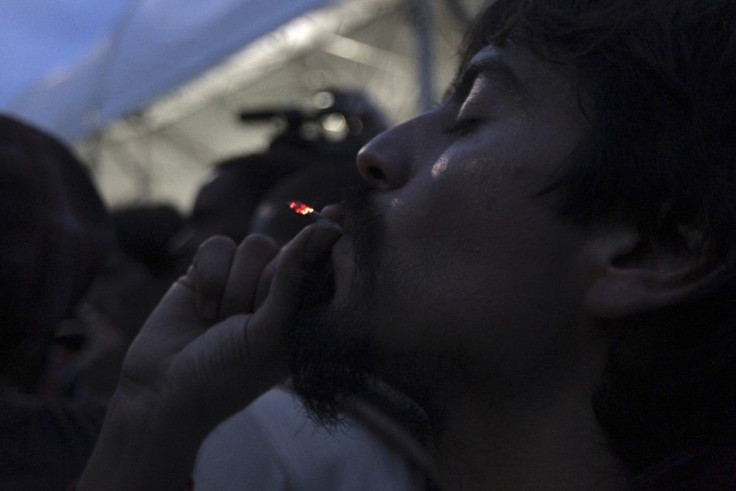Uruguay Government May Become First In The World To Sell Marijuana

Uruguay's government may become the first in the world to sell marijuana as a new bill proposes to legalize sales of the drug by the state.
Under the proposed law, the Uruguayan government would be able to sell marijuana directly to consumers, but only to adults who register with a government database that would monitor their consumption over time.
The plan is backed by Uruguayan President Jose Mujica, and Defense Minister Eleuterio Fernandez hailed it as a bold step toward cutting profits from illegal drug sales, reducing drug-related crime, and turning users away from harder drugs like crack cocaine.
It's a fight on both fronts: against consumption and drug trafficking. We think the prohibition of some drugs is creating more problems to society than the drug itself, Fernandez told reporters late Wednesday.
Homicides related to settling scores have increased, and that's a clear sign that certain phenomena are appearing in Uruguay that didn't exist before, he added.
Backers of the bill view the rise in drug-related crime as enabled by its increasing profitability -- the illegal marijuana market in Uruguay is estimated to generate $75 million a year -- and the nature of harder drugs, which can push people into dealing to support their habits.
By cutting into profits of illegal drug sales and by making a legal alternative to harder drugs more readily available, the bill aims to deter people from becoming dealers.
The bill has yet to go before Congress, but is expected to receive wide support from President Mujica's left-wing Broad Front coalition, which dominates both chambers of the legislature.
If passed, Uruguay would become the first national government in the world to engage in direct sales of marijuana.
Marijuana Policies Elsewhere And The Debate On Crime
In the Netherlands, a country known for its lax policies on marijuana, the sale of the drug remains technically illegal, though is tolerated to a certain extent by the government. This has allowed for the proliferation of Amsterdam's famous cannabis coffee shops, with local authorities turning a blind eye on the consumption and distribution of the drug.
Many other countries and several U.S. states have effectively decriminalized marijuana for recreational or medicinal use.
In U.S. states like California, Colorado and Maine, the sale and use of the drug for medicinal purposes is legal, while remaining illegal at the federal level.
In New York, Governor Andrew Cuomo's recent proposal to decriminalize possession of small amounts of marijuana in public was swiftly rejected by Republicans in the state legislature, who refused to vote on it before the end of the legislative session Thursday.
Cuomo, a Democrat, and other supporters of the decriminalization initiative have argued that New York's policy on marijuana possession has resulted in the disproportionate amount of arrests of young black and Hispanic men, perpetuating a cycle of criminal behavior, unemployment and poverty and bloating costs for the state's criminal justice system.
Detractors of the proposal argued that it would encourage young people to abuse drugs and send a message to the public that Albany is weak on combating drug crime.
The divide in the New York State Assembly mirrors the general debate over legalizing marijuana in many other U.S. states and countries, hinging on whether it reduces or increases crime.
The factors involved are complicated enough to support either argument.
For instance, the Netherlands has some of the lowest crime rates in the world, but the median wealth of the population is also higher than average.
Uruguay has never had a policy of criminalizing marijuana possession for personal use, and it is also one of the safest countries in South America.
The question is whether making it easier for people to consume marijuana will prevent them from using other drugs associated with increases in criminal behavior.
A common argument is that marijuana is a gateway drug that ultimately leads users down a pathway to harder drugs. The counterargument is that criminalizing it puts it in the same category as harder drugs, which erodes the mental barrier that might otherwise prevent people from abusing them.
Faced with rising drug-related crime, the proposal in Uruguay is banking on the latter assessment of marijuana's impact on society.
© Copyright IBTimes 2025. All rights reserved.





















